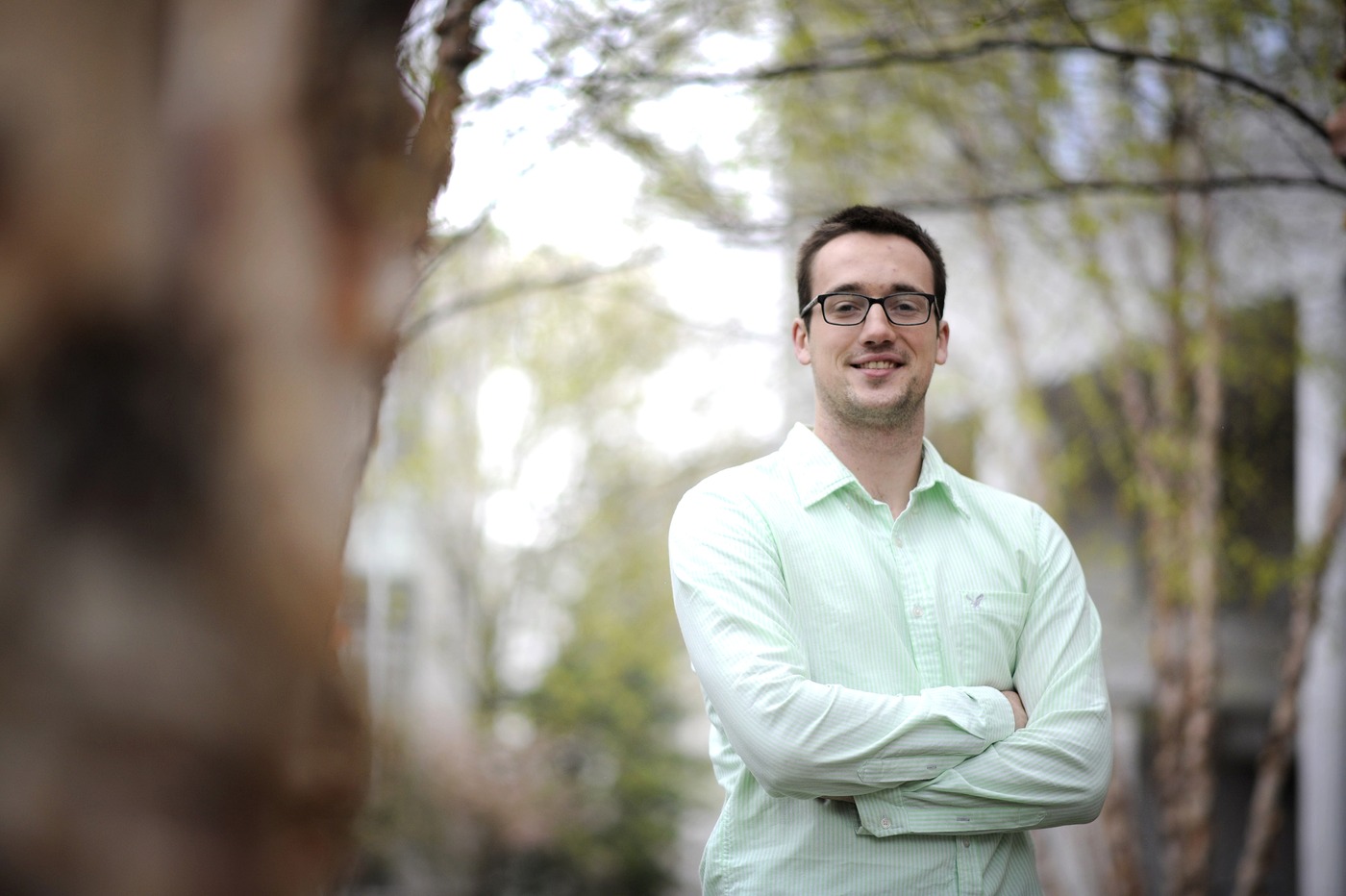by Jason Kornwitz
Theo Bowe’s co-op jobs in campus labs and far-flung countries have prepared him for the next phase of his academic journey: Harvard Medical School. Here, Bowe,S’16, reflects on his past five years at Northeastern and offers some keen advice to other students.
You studied biology at Northeastern and plan to enroll in the MD program at Harvard Medical School in August. What will you focus on, and how will your area of study dovetail with your career ambitions?
I am entering Harvard Medical School with a mindset similar to the one with which I entered Northeastern: I don’t know exactly what area I want to focus on, but I do know that I will go in with an open mind and a plan to talk to people who are doing things that I find interesting. While I do not have a specific career path in mind, I have begun to determine things that I value in a career, such as an opportunity to make a difference in my community through public health and policy advocacy and the chance to be a leader in my field. I plan to find a career that encompasses all of these things, and I am sure that HMS has the people as well as the resources to help me do that.
Your undergraduate accomplishments run deep, from receiving the Barry M. Goldwater Scholarship in 2014 to being named to Northeastern’s Huntington 100 in 2015. What would you say is your biggest achievement at Northeastern?
I would say that my biggest achievement at Northeastern was managing to balance all of the demands on my time needed to meet the academic and extracurricular goals I set for myself, while still managing to explore interests unrelated to these goals and to have fun. I am proud of some of the more objective accomplishments, but I wouldn’t be happy if those accomplishments were the main ways I defined my college experience. So, I guess I would say that finding a great balance, which was difficult at the beginning of my time at Northeastern, is my biggest achievement during my time here.
How did your research experiences in campus labs and far-flung countries—including your positions as an ophthalmology research associate at Boston Children’s Hospital and as a citizen science research assistant at the University of Cape Town’s Animal Demography Unit—prepare you for the next phase of your academic journey?
My research experiences were relatively varied in type and location—basic science versus clinical, domestic versus abroad—and I think that the combination of breadth and depth of experience has led to the development of a self-confidence that I can excel in unfamiliar situations. The next phase of my academic journey will begin in the fall at HMS, where I anticipate I will regularly be thrust into unfamiliar situations. My time at Northeastern has prepared me to face these unknowns with confidence.
You served as a resident assistant for almost three years. What did working with students in this capacity teach you about what it will take to work with patients as a doctor?
As a resident assistant, I developed a number of skills that I believe will be transferrable to my future as a physician. I have worked with people from all different backgrounds, helped students with confidential and sensitive issues, and developed a comfort with ambiguity. The RA position put me in situations that forced me to grow, but did it in ways that were not overwhelming. All of these aspects will likely have analogs over the course of my medical training, and I believe that having had experiences as an RA that are similar has made me more prepared to face these challenges in the future.
Describe your fondest memory of the past five years at Northeastern.
This is a very difficult question to answer, but if I had to pick one I would say that my fondest memory over my time at Northeastern would be going to Opening Day at Fenway Park in 2014 with my dad and two of my brothers. The pregame ceremony was an amazing celebration of this city that I have come to love—the Red Sox received their 2013 World Series rings, but more importantly there was a lengthy tribute to the victims and survivors of the Boston Marathon bombings and to the medical and law enforcement personnel who so valiantly served our community at that time. The ceremony was a powerful celebration of the goodness and bravery of the people of this community, and as a student who was here during the bombing, I was grateful to be there to add my voice to that celebration.
What advice do you have for other students?
My general advice would be to make the most of their time here, with the understanding that this will look different for every single student. Your experience at Northeastern will absolutely be what you make it. There are incredible faculty, staff, and other students here, some of whom will be interested in the same things you are. Find those people and get involved. Also, I highly encourage taking courses in a field outside of your major—I was a biology major and two of my favorite and most formative classes at Northeastern were offered by the history and philosophy departments.
All of the things I have accomplished at Northeastern were made possible through the help and support of mentors. Talk to your professors. Oftentimes they are incredible people who are eager to help students excel in the classroom and beyond.

